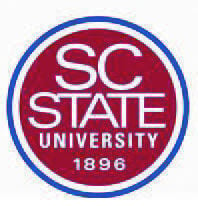South Carolina State University chairman: Trustees can refuse payments; institutions across state also provide reimbursements

.tnt-restrict-img-68e6ff51-700c-5d35-ba24-b15e204239fd { max-width: 198px; }
South Carolina State University’s trustees can choose not to be reimbursed for attending meetings, the board chairman says.
S.C. State trustees voted 10-3 last month to begin providing per diem and mileage reimbursements for their service on the board.
Board Chairman Rodney Jenkins said the decision was made with a new, full board in mind.
“It’s just what the state allows. This is nothing new. In 2015 when the temporary board came on, they didn’t utilize the per diem and travel piece. When we came on in 2018, when they went back to the full board, we also didn’t utilize that. We agreed not to take per diem and travel,” he said.
The chairman continued, “Now that we’ve got another board, we put it back on the table so everybody would get an opportunity to make a decision. So we decided that that’s an option for each board member. Each board member doesn’t have to take it. That just depends on the individual. It is an allowable expense for board members of universities.”
Voting in favor of the reimbursements were trustees Starlee Allen, Jameel Allen, Louvetta Dicks, Ronald Friday, Douglass Gantt, William Oden, Donnie Shell, Macie Smith, Daniel Varat and Rodney Jenkins. Voting in opposition were trustees Dr. Doris Helms, Monica Scott and Wilbur Shuler.
The state’s General Appropriations Act provides mileage reimbursements at a rate of 56 cents per mile. Under state law, a per diem allowance for all boards, commissions and committees is also allowed at $35 per day.
Sam Watson, the university’s public information officer, said the trustees would receive the $35 per diem and be paid at the university’s current mileage reimbursement rate of 52.5 cents per mile.
In 2015, the state General Assembly appointed a temporary, seven-member board tasked with restoring the university’s fiscal health. A newly constituted board began serving July 1, 2018.
S.C. State’s trustees had not received any compensation for sitting on the board for at least the past three years as the university continued to recover financially.
The board’s newest members came on in October 2020, and Jenkins said the per diem and mileage reimbursement payments were an allowable option that the board had the right to consider.
“We never did settle that issue, to let them vote on whether they were going to do it or not. We deferred it a couple of times. I wanted to get it off the table, that we would be able to have those board members have an opportunity to vote on whether they wanted have the option to receive it or not, and right now they do,” Jenkins said.
The chairman said the university’s financial outlook is improving.
“Our financial position has changed somewhat. I want to believe to the better. We’re in the black now. We were in the red then (in 2015). Once we got back to what we considered a regular board – the board that has been by statute, which is a 13-member board with the four or five ex-officio members – I thought it was proper that each board had an opportunity to make that decision (on per diem and mileage),” Jenkins said.
“That’s why it came back up. They agreed that they would have the opportunity to receive per diem and mileage. Whether each person takes it, it’s an individual piece,” he said.
The chairman continued, “There will be some that will take it, and some won’t take it. It’s not just for board members. Other public servants throughout the state have that option. … So I wouldn’t even want to even try to think about who didn’t take the option to receive the per diem during the time when we were in the red.
“At this point, we’re not in the red, and things are moving in a direction that we want to see things go. So, again, it goes back to each board having the opportunity to make a decision for itself. But that’s not for South Carolina State University only. That’s a statewide thing, that’s a statewide allowable expense. So it’s not isolated to South Carolina State. If people don’t understand that, I want them to understand that.”
Legislators speak
Rep. Jerry Govan, D-Orangeburg, said he has no issue with the university board receiving per diem and mileage reimbursements.
“This is the normal practice for all the state boards and commissions in terms of reimbursement or per diem and travel as long as the amounts are within – and I understand they clearly are – the state guidelines. It’s nothing exorbitant about the amounts being collected. I’m fine with it,” he said.
Govan noted that the S.C. State trustee board needs to be treated “just like any other board.”
“I think what we need to be more focused on is how these individuals are working to bring funds to the university, or write checks in terms of being in support of the institution, or other ways that they can contribute through their contracts and affiliations to help the university. These are the things that I think that we need to focus on,” Govan said.
The legislator added, “I’m not at all upset about them receiving the miniscule amount of travel and per diem, which the state doesn’t pay that much anyway. So I think we need to focus on the bigger picture in terms of recruitment of students and trying to build the enrollment back to where it needs to be for the school to be successful and ensure we have the leadership in place that can get that done.”
Govan said the board has been “doing what it’s supposed to do.”
“I think they’ve been transparent, and I think it’s important that we as a community get behind the institution and try to move it forward because it plays a vital role and link in the economic development of Orangeburg,” he said.
Rep. Gilda Cobb-Hunter, D-Orangeburg, said “Members of boards and commissions are allowed to receive per diem for attending meetings. It speaks volumes that the old board had chosen not to receive compensation because of fiscal constraints.
“I assume because the university is now on sound financial footing that the current board no longer has that concern.”
Sen. Vernon Stephens, D-Bowman said, “South Carolina State University has had some turbulent financial situations. There appears to be some stability coming back to the university as far as finances is concerned.”
Stephens said he has no problem with the board receiving per diem and mileage reimbursements for attending meetings.
“With their strategic plan to get the institution well academically and financially, it’s going to involve board members being at the institutions and meetings whether or not it’s strategic planning, or whether or not it’s simple board meetings. … When you’re traveling the distance, I think there should some type of compensation for that. With the many meetings, there should be some stipends,” he said.
“There are some institutions in the state that never actually stopped giving their board or commission members stipends. So I think it’s time that they do receive this. I’m of the opinion that there may be a number of them that opt not to take it. I say thank you to them, as well as the board members who will be receiving it. I believe there is a sense of how we need to do this right and get it right, and I think that is coming,” Stephens said.
Other institutions
Rusty Monhollon, executive director of the S.C. Commission on Higher Education, said “I know it’s permitted in state law. We reimburse our commissioners as part of our board. They get both per diem and mileage reimbursement for attending meetings.”
The payment of per diem and mileage reimbursement payments varies among other public colleges and universities.
Dr. Walt Tobin, president of Orangeburg-Calhoun Technical College, said the OCtech Area Commission receives a $35 meeting stipend and a mileage reimbursement of 56 cents per mile.
Kevin Whitt, chairman of the Denmark Technical College Area Commission, said, “We just don’t do it. We probably could if we asked for it, but that’s just not something we’re interested in pursuing at the moment.”
John Sweeney, vice president of communications at Francis Marion University, said trustees receive a $35 per diem and mileage reimbursements at a rate of 56 cents per mile.
“About half of the board does not accept the mileage or the per diem. They decline it as part of their service to the board,” Sweeney said.
Lander University trustees receive a $35 per diem and mileage reimbursements at 52 cents per mile.
Nikasha N. Dicks, director of marketing and public relations at Aiken Technical College, said the college’s commission members do not receive per diem payments, but are reimbursed at a rate of 56 cents per mile for travel.
Kimberly Faust, secretary to the board of trustees at Winthrop University, said trustees have decided not request mileage and per diem reimbursement while on board business for at least 18 years.
“Winthrop does provide a room at a local hotel if the trustees have to stay overnight, and we provide a meal if they are on campus all day, but we do not reimburse any travel or food for them,” Faust said.
Commission members at Midlands Technical College and Trident Technical College both receive a $35 per diem payment and are reimbursed at 56 cents per mile for travel on board business.
Contact the writer: dgleaton@timesanddemocrat.com or 803-533-5534. Follow “Good News with Gleaton” on Twitter at @DionneTandD
#pu-email-form-daily-email-article { clear: both; background-color: #fff; color: #222; background-position: bottom; background-repeat: no-repeat; padding: 15px 20px; margin-bottom: 40px; border-top: 4px solid rgba(0,0,0,.8); border-bottom: 1px solid rgba(0,0,0,.2); display: none; } #pu-email-form-daily-email-article, #pu-email-form-daily-email-article p { font-family: -apple-system, BlinkMacSystemFont, “Segoe UI”, Helvetica, Arial, sans-serif, “Apple Color Emoji”, “Segoe UI Emoji”, “Segoe UI Symbol”; } #pu-email-form-daily-email-article h1 { font-size: 24px; margin: 15px 0 5px 0; font-family: “serif-ds”, Times, “Times New Roman”, serif; } #pu-email-form-daily-email-article .lead { margin-bottom: 5px; } #pu-email-form-daily-email-article .email-desc { font-size: 16px; line-height: 20px; margin-bottom: 5px; opacity: 0.7; } #pu-email-form-daily-email-article form { padding: 10px 30px 5px 30px; } #pu-email-form-daily-email-article .disclaimer { opacity: 0.5; margin-bottom: 0; line-height: 100%; } #pu-email-form-daily-email-article .disclaimer a { color: #222; text-decoration: underline; } #pu-email-form-daily-email-article .email-hammer { border-bottom: 3px solid #222; opacity: .5; display: inline-block; padding: 0 10px 5px 10px; margin-bottom: -5px; font-size: 16px; } @media (max-width: 991px) { #pu-email-form-daily-email-article form { padding: 10px 0 5px 0; } }




Leave a Reply